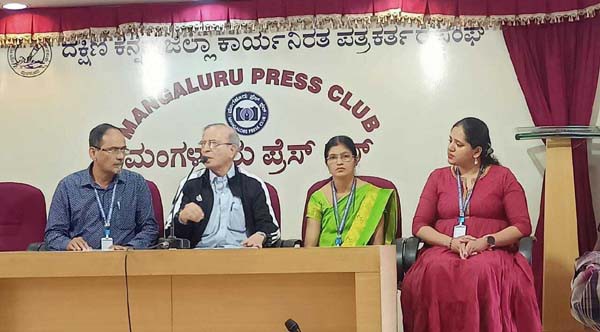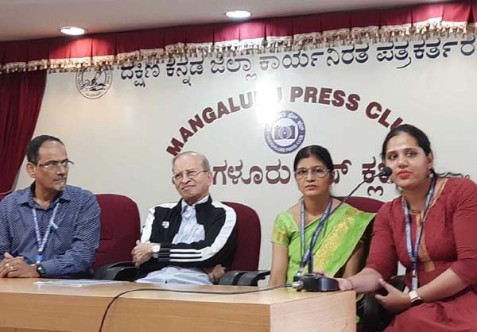

Mangaluru: St Aloysius College to organize international symposium on AI
- Media Release
Mangaluru, 16 Nov 2022: To be God-like has been the dream of many a human from the dawn of civilization. The incredible strides modern science has been making for the last four hundred plus years, particularly during the last one hundred odd years, seem to offer humans much hope that this dream is within their reach. No other breakthrough in science and technology is more reassuring in this context than Artificial Intelligence (AI), especially when accompanied by robotics and humanoid technology.
AI is intelligence that is produced artificially in a machine. It is an attempt to produce human-like intelligence in a human-made machine. Today AI and associated fields have become one of the most active epicentres of scientific research and development (R & D). According to a 2020 estimate, there are at least 72 active AI-related R & D projects spanning 37 countries.
AI with its application in robotics and humanoids has been bringing about a revolution the consequences of which are expected to go far beyond the realm of science and technology to impact many important aspects of human existence and life, so much so, it may not be inappropriate to talk of “AI-Robotic” revolution. Fear has been expressed that, as a result of this revolution, humanoids, endowed with high-quality AI and other technological enhancements, might outsmart and outperform ordinary humans to render them redundant, particularly the poor and the unskilled who are engaged in many ordinary jobs in various parts of the world.


Another reason for the growing importance of AI-Robotic revolution is the high versatility and wide-range applicability of the AI-powered robots and humanoids. There is a whole long chain of robots to meet the needs of many fields. In the world of humanoids also a wide variety is available.
A major, almost all-pervasive, set of developments of this type is bound to have strong impact on many aspects of human life and activities at various levels, raising serious questions. To begin with, what is intelligence? Scholars point out that hitherto we have only an analogical idea of this commonplace phenomenon; an ontological understanding still eludes us. All proponents and promoters of AI-driven robots and humanoids agree that their products are machines only, albeit highly sophisticated and extremely efficient in their own area of competence. Until these become conscious, these cannot be put even at the level of low-level animals. How can science make them conscious? More profoundly, can science make them conscious at all? At the root of it all lurks the fundamental question: what is consciousness? Once again, we have only a phenomenological understanding of consciousness. We have only certain reliable criteria or indicators to reveal that the being in question is conscious. The real nature or ontology of this phenomenon still remains an enigma.
Another area of concern in this context is the impact of AI-powered robots and humanoids on society. What are some of the consequences accompanying them? How is the present society going to deal with them creatively and responsibly? Can we consider these new creations persons like us humans? If so, can we take them as moral agents capable of really knowing and freely choosing their preferences?
In 2017 ‘Sophia,’ the social humanoid of Hanson Robotics, was given citizenship by the Kingdom of Saudi Arabia. What are its implications? Is it a mark of Saudi Arabia’s respect and regard for women or, as some critics point out, a gimmick for publicity and promotion of business?
Again, how will these new developments affect the economy of the nations, particularly the poor and less developed ones? There is no doubt that, though this new industry will generate some very attractive jobs with handsome salaries, it will leave a large section of the present workforce jobless and eventually penniless. Can we afford such a fate to befall our society?
There is no doubt that some of these smart robots will be extremely helpful in the fields of industry, space exploration, advanced medical interventions, etc. It is equally certain that such facilities will be exorbitantly expensive and go beyond even the dreams of ordinary people. Chances are that the principal, if not the exclusive, beneficiaries of these new arrivals are going to be the super-rich and the super-cared for. The ordinary folks will be left only to watch and wonder! Will not this scenario further widen the divide between the haves and the have-nots?
These and related issues will be studied and critically evaluated by a team of international and national scholars at an International Symposium organized by IISR (Indian Institute of Science and Religion) in close collaboration with St Aloysius College (Autonomous), Mangaluru and Catholic Chair of Mangalore University on November 18-20. This is the 14th international symposium organized by IISR Delhi on cutting-edge issues in science and technology and their impact on human society and religious values.